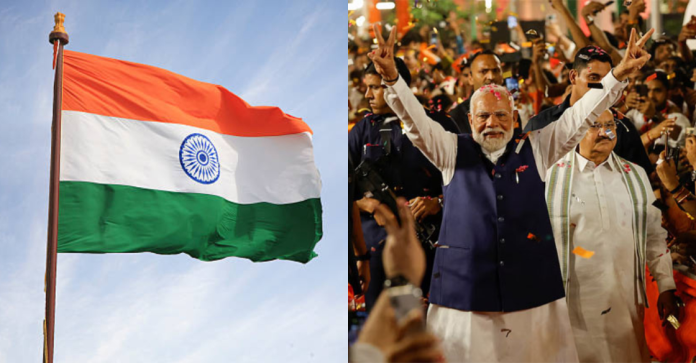Prime Minister Narendra Modi claimed victory for his alliance on Tuesday in India’s general election, despite a lackluster performance from his own party as it faced a stronger-than-expected challenge from the opposition. This opposition has pushed back against his mixed economic record and polarizing politics.
Speaking to a crowd at his party’s headquarters, Modi announced that his National Democratic Alliance (NDA) would form the government for the third consecutive time, emphasizing that Indian voters had “shown immense faith” in both his party and the coalition alliance. “Today’s victory is the victory of the world’s largest democracy,” he declared.
However, for the first time since Modi’s Bharatiya Janata Party (BJP) swept to power in 2014, it appeared unlikely that the party would secure a majority on its own. Modi would instead need the support of other parties in his coalition to secure his third five-year term. This outcome would mark a significant setback for the 73-year-old leader, who had hoped for a landslide victory. Despite this, many of the Hindu nationalist policies he has instituted over the past decade remain in place.
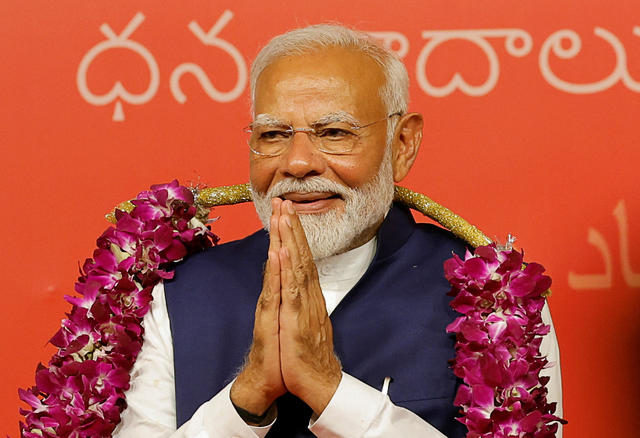
The opposition claimed a form of victory as well, with the main opposition Congress party characterizing the election as a “moral and political loss” for Modi. Congress party President Mallikarjun Kharge told reporters, “This is public’s victory and a win for democracy.”
In his ten years in power, Modi has transformed India’s political landscape, bringing Hindu nationalism, once a fringe ideology, into the mainstream, leaving the country deeply divided. His supporters view him as a self-made, strong leader who has improved India’s standing globally, while critics argue that his Hindu-first politics have bred intolerance, and the economy, despite being one of the fastest-growing, has become more unequal.
As of Tuesday night, the counting of more than 640 million votes cast over six weeks continued. Partial tallies from India’s Election Commission showed the BJP ahead in 114 constituencies and having won 126 of 543 parliamentary seats. The Congress party led in 45 constituencies and had won 54. A total of 272 seats are needed for a majority.
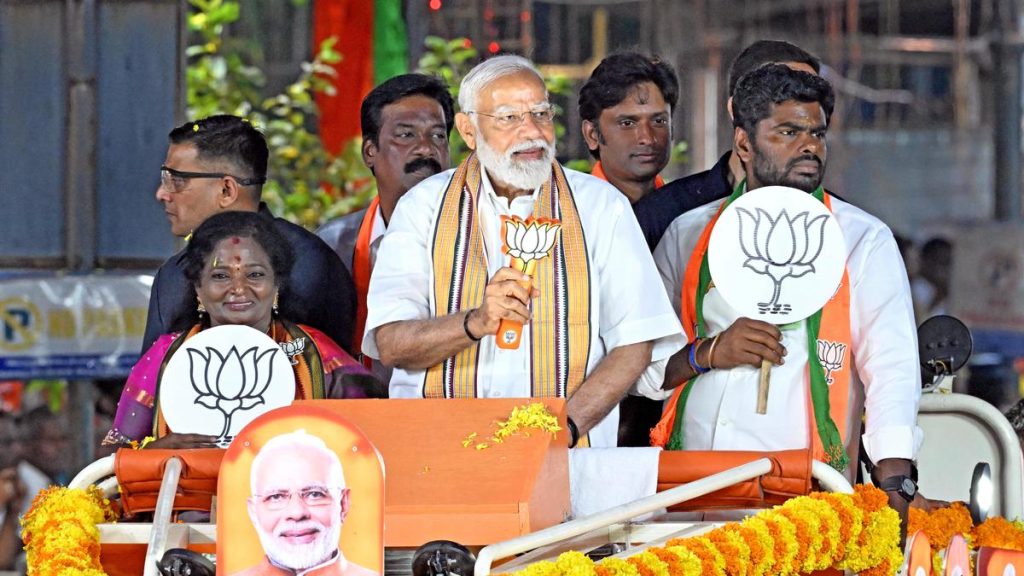
The BJP-led NDA led in 147 constituencies and had won 139, while the Congress-led INDIA alliance led in 131 constituencies and had won 99. The Election Commission does not release data on the percentage of votes tallied.
Exit polling had projected the NDA to win more than 350 seats. However, Indian markets, which had hit an all-time high on Monday, closed sharply down on Tuesday. Benchmark stock indices—the NIFTY 50 and the BSE Sensex—both fell by more than 5%.
For voters like Payal, a resident of Lucknow, the election was about the economy and poverty. “People are suffering, there are no jobs, people are in such a state that their kids are compelled to make and sell tea on the roadside,” she said. “This is a big deal for us. If we don’t wake up now, when will we?”
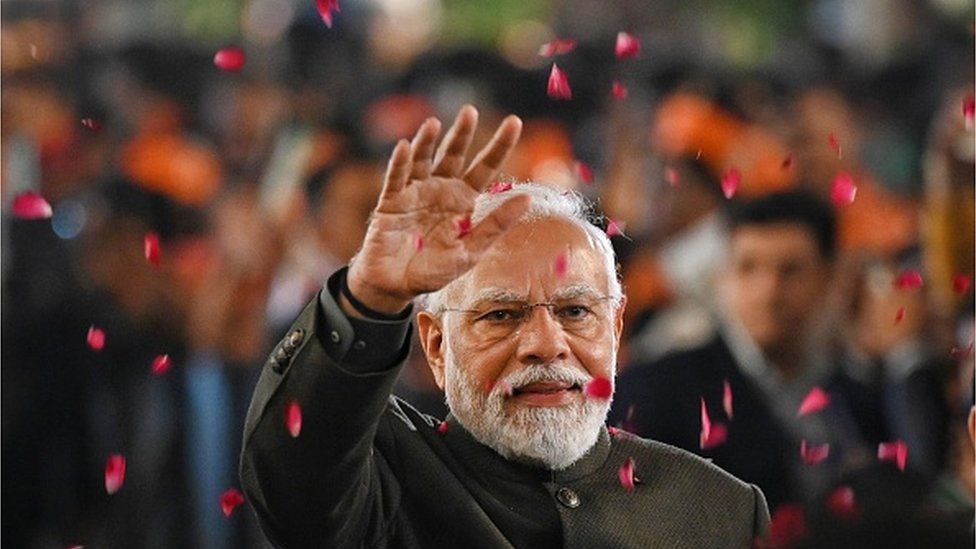
If Modi secures a third term, it would make him only the second Indian leader to do so after Jawaharlal Nehru, the country’s first prime minister. However, if the BJP must form a coalition, the party would likely be heavily dependent on the goodwill of its allies. “This would be truly, you know, uncharted territory, both for Indians as well as for the prime minister,” said Milan Vaishnav, director of the South Asia Program at the Carnegie Endowment for International Peace.
Before Modi came to power, India had coalition governments for 30 years. His BJP has always had a majority on its own while still governing in a coalition. Extreme heat struck India as voters went to the polls, prompting election officials and political parties to provide water and outdoor air coolers for people waiting for results.
Outside BJP party headquarters in New Delhi, supporters celebrated as the counting was underway. Meanwhile, supporters at the Congress party headquarters appeared upbeat and chanted slogans praising Rahul Gandhi, the face of the party’s campaign.
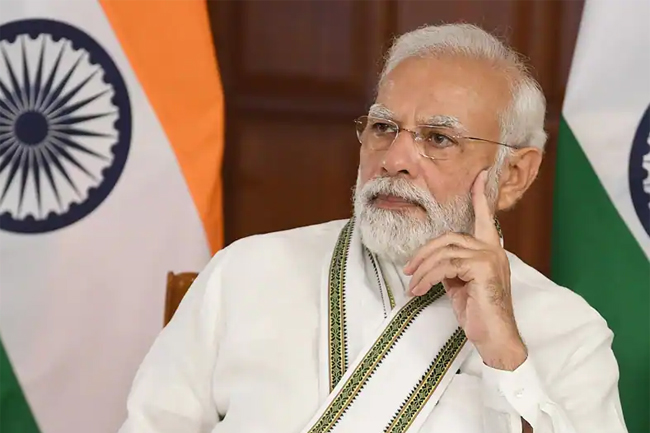
Speaking at a press conference with Kharge, Gandhi said the figures were a message from the people. “The poorest of this country have defended the constitution of India,” he said.
Over his ten years in power, Modi’s popularity has often outstripped that of his party’s, turning parliamentary elections into contests resembling presidential-style campaigns. The BJP increasingly relies on Modi’s enduring brand to stay in power, with local politicians receding into the background even in state elections.
“Modi was not just the prime campaigner, but the sole campaigner of this election,” said Yamini Aiyar, a public policy scholar.
Modi’s critics argue that India’s democracy is faltering under his government, which has increasingly used strong-arm tactics to subdue political opponents, squeeze independent media, and quash dissent. The government rejects such accusations, asserting that democracy is flourishing.
Economic discontent has simmered under Modi. While stock markets reach record highs and millionaires multiply, youth unemployment has soared, with only a small portion of Indians benefiting from the boom. Initially, the BJP’s confident campaign focused on “Modi’s guarantees,” highlighting economic and welfare achievements. However, as the campaign progressed, Modi ramped up polarizing rhetoric targeting Muslims, who make up 14% of the population, a tactic seen to energize his core Hindu majority voters.
The opposition INDIA alliance attacked Modi over his Hindu nationalist politics, joblessness, inflation, and inequality. Despite ideological differences and defections within the broad alliance of over a dozen political parties, they have claimed unfair targeting through raids, arrests, and corruption investigations against their leaders by federal agencies, accusations the government denies.
In Mumbai, Mangesh Mahadeshwar was among those surprised by the election results. “Yesterday we thought that the BJP would get more than 400 seats,” said the 52-year-old. “Today it seems like that won’t happen – people haven’t supported the BJP so much this time.”


